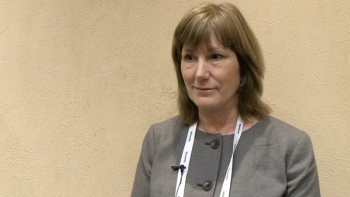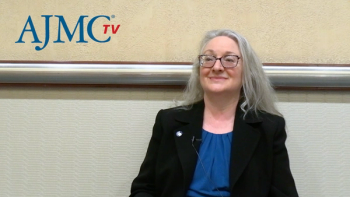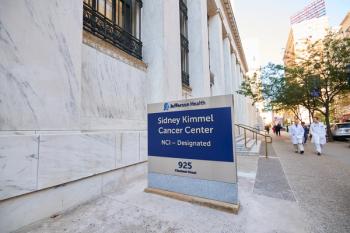
Payers
Latest News
Latest Videos

Podcasts
CME Content
More News

As health care costs escalate, a new survey reveals that 74% of employers are grappling with the impact on employee wages and benefits, with many anticipating further cost-shifting to their workforce.

Stuart Staggs, vice president of transformation and shared services at McKesson, explained that oncology practices in the Enhancing Oncology Model (EOM) have a tough job driving down costs when drug costs make up a larger portion of the total cost of care.

Medicaid, Medicare, and private insurance programs all showed significant variability in expenditures based on social and nonclinical factors.

The Wellth smartphone app significantly increased medication adherence and lowered unnecessary health care utilization and costs over 9 months among Medicaid beneficiaries who were self-managing chronic conditions.

There is a role for both payers and providers to make small changes that would increase the use of biomarker testing to ensure patients are receiving the appropriate treatment, said Susan Wescott, RPh, MBA, senior director of managed care pharmacy, Mayo Clinic.

Co-pay accumulators and maximizers are 2 programs that insurers have started implementing to help them redirect financial assistance from the patient, said Kimberly Westrich, MA, chief strategy officer, National Pharmaceutical Council.

A review of positions and track records of Vice President Kamala Harris and former President Donald Trump on reproductive health, the future of the Affordable Care Act, prescription drug costs, health care consolidation, and a proposed Medicare home health benefit.

The prevalence rates of metabolic dysfunction–associated steatohepatitis (MASH) and metabolic dysfunction–associated steatotic liver disease (MASLD) are likely underestimated using claims data alone.

As a result of vertical integration, health plans may have 2 different coverage policies on the medical benefit side and the pharmacy benefit side for the same drug.

Although the cost of biomarker testing isn’t cheap, the cost of therapy for patients can be much higher, making it important to conduct these tests to start the right therapy, explained Susan Wescott, RPh, MBA, of Mayo Clinic.




Lalan Wilfong, MD, a 20-year medical oncologist with Texas Oncology, is senior vice president, value-based care, Thyme Care.



An integrated, rule-based informatics system demonstrated its capacity to leverage electronic health records to streamline the prior authorization process and promote the use of biosimilars.

The prior authorization process for patients with cancer demonstrates fewer days until submission and lower denial rates for Asian patients relative to White patients.

An August 2024 update to the National Comprehensive Cancer Network (NCCN) clinical practice guidelines for treatment of myeloproliferative neoplasms (MPN) calls puts a priority on clinical trials, even preferring them to FDA-approved therapies in some cases. Aaron Gerds, MD, MS, of Cleveland Clinic Taussig Cancer Institute discusses the updates and what's in the pipeline for MPN treatment.

Investigators from Florida Cancer Specialists & Research Institute explored questions surrounding minimal residual disease (MRD) negativity testing in an abstract presented at the International Myeloma Society 21st Annual Meeting & Exposition.

After a small number of practices joined the Enhancing Oncology Model (EOM) in 2023, CMS has made some changes and opened the model back up for new practices to join.

Ted Okon, MBA, executive director of the Community Oncology Alliance, spoke with The American Journal of Managed Care® about how the Federal Trade Commission's (FTC) lawsuit against pharmacy benefit managers (PBMs) could affect the future of pharmaceuticals and oncology.

JT Lew, PharmD, MBA, managed care pharmacist at MultiCare Health System, spoke to the impacts of processes such as prior authorization and step therapy requirements in the realm of multiple sclerosis (MS).

The author discusses a program to prevent kidney decline and progression to dialysis by offering education, support services, and help navigating the health care system to those most at risk.

Ocrelizumab and hyaluronidase is now the first and only twice-yearly subcutaneous injection approved for relapsing multiple sclerosis (RMS) and primary progressive multiple sclerosis (PPMS).
















